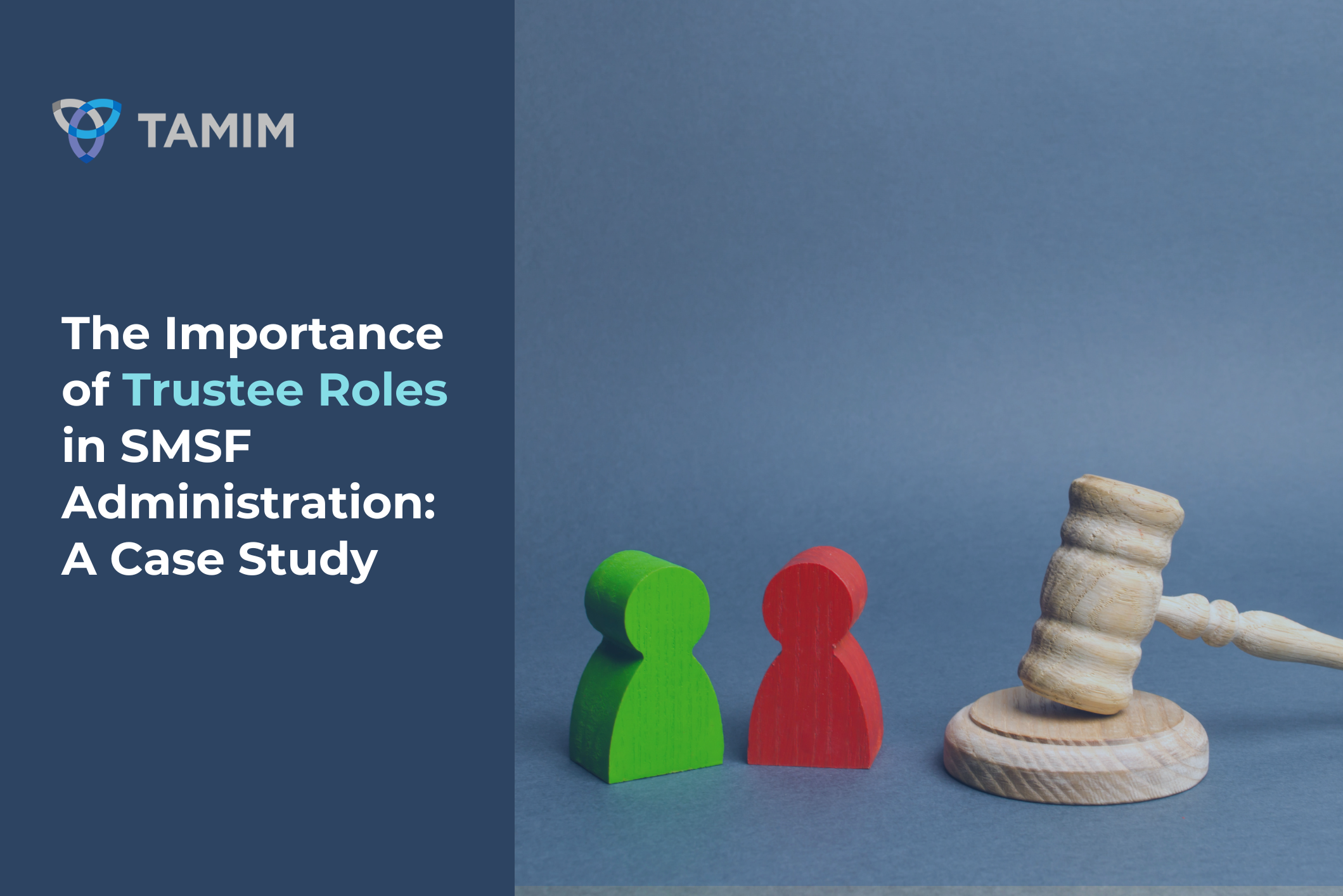The Superannuation Industry (Supervision) Act 1993 (SIS Act) is complex, and navigating its intricacies requires a clear understanding of trustee responsibilities, regulatory requirements, and governance standards. When dealing with such complex matters, the courts can provide valuable guidance on issues such as Non-Compliance and Legal Consequences, Judicial Advice to Trustees, Death Benefits and Trustee Discretion, and Remuneration of Directors.  This article examines a recent court case, Re: Gainer Associates Pty Limited [2024] NSWSC 1138, which highlights these critical issues and underscores the importance of robust governance and compliance for self-managed superannuation fund (SMSF) trustees.
This article examines a recent court case, Re: Gainer Associates Pty Limited [2024] NSWSC 1138, which highlights these critical issues and underscores the importance of robust governance and compliance for self-managed superannuation fund (SMSF) trustees.
Case Overview
The court case focused on an SMSF that became non-compliant following the death of a member. Under the SIS Act, when a member passes away, their legal personal representative must be appointed as the trustee or director of the corporate trustee. In this instance, the NSW Trustee and Guardian (NSWTG), acting as the deceased member’s legal personal representative, appointed an external accountant as director of the corporate trustee instead of taking on the role themselves. This decision breached the SIS Act, rendering the SMSF non-compliant. Despite this misstep, the trustee and NSWTG disclosed the breach to the Australian Taxation Office (ATO) and sought indemnity. This proactive approach became a focal point of the court’s deliberations.
Key Issues and Court Findings
1. Non-Compliance and Legal Consequences
The court acknowledged the SMSF’s breach of compliance rules but emphasised the trustee’s efforts to rectify the situation. The trustee disclosed the non-compliance to the Australian Taxation Office (ATO) and sought indemnity, demonstrating a proactive approach to mitigating potential penalties.
2. Judicial Advice to Trustees
A significant part of the ruling provided judicial advice under Section 63 of the Trustee Act 1925 (NSW). The court underscored that seeking advice is crucial when trustees face ambiguity, even if the fund is in breach of regulations. This guidance helps trustees ensure the proper administration of trust property.
3. Death Benefits and Trustee Discretion
The court also examined the trustee’s discretion in distributing death benefits. Trustees must exercise their discretion within the bounds of the trust deed and regulatory framework, emphasising the importance of transparency and compliance in decision-making.
4. Remuneration of Directors
A contentious issue involved the remuneration of the external accountant appointed as director of the corporate trustee. The SIS Act prohibits payments from the SMSF that could render it non-compliant. The court allowed remuneration from the deceased member’s estate, provided it was disclosed to the ATO and did not violate the SIS Act.
Implications for SMSF Holders
1. Governance Matters
The case highlights the critical importance of governance in SMSFs. Trustees must adhere to strict regulatory standards and act in the best interests of the fund’s beneficiaries. Non-compliance can result in penalties and jeopardise the fund’s concessional tax treatment.
2. Importance of Legal and Financial Advice
This ruling underscores the value of professional advice for SMSF trustees. Engaging legal and financial experts ensures adherence to the SIS Act and other relevant legislation, particularly during complex scenarios like the death of a member.
3. Estate Planning Considerations
For SMSF members, having a robust estate plan is vital. Clear instructions regarding the appointment of trustees and the management of death benefits can prevent disputes and compliance issues.
4. Transparency with Regulatory Authorities
Trustees must prioritise transparency with the ATO and other regulators. Proactively addressing breaches, as demonstrated in this case, can mitigate legal and financial risks.
Lessons for SMSF Members and Trustees
-
- Know the Rules: Trustees must be well-versed in the SIS Act and the trust deed governing their SMSF. Understanding these rules helps avoid unintentional breaches.
- Plan for the Future: Estate planning should include specific provisions for SMSF management, such as appointing a legal personal representative who understands their responsibilities.
- Seek Expert Advice: Trustees facing complex issues should not hesitate to seek judicial or professional advice. This approach can help resolve disputes and ensure the fund operates within the law.
- Document Decisions: Maintaining detailed records of decisions and communications with regulators can protect trustees from allegations of misconduct.
The Tamim Takeaway
This case serves as a wake-up call for SMSF trustees and members about the complexities of fund management and compliance. While SMSFs offer flexibility and control, they require diligence and a proactive approach to governance. Understanding the legal landscape and engaging with experts when needed can help trustees navigate challenges and safeguard their fund’s long-term viability. For SMSF holders, this is a timely reminder of the need for rigorous planning and adherence to regulations. By prioritising compliance and seeking advice when necessary, trustees can uphold their responsibilities and ensure their fund operates effectively for the benefit of all members.
